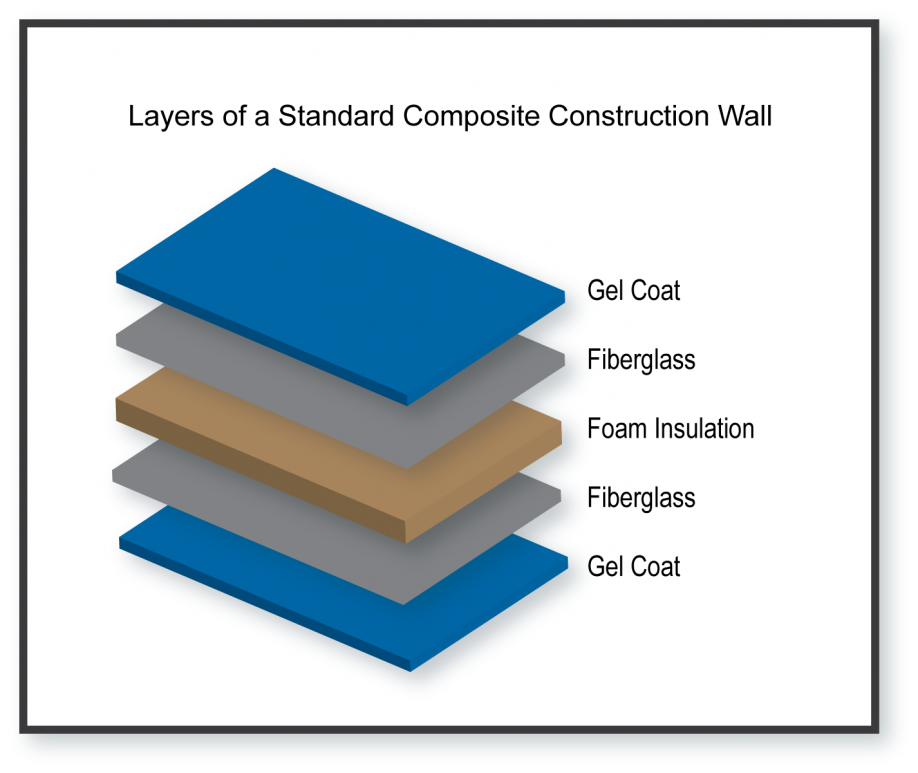Composites: The Secret to Modern, Lasting Building And Construction
Composites: The Secret to Modern, Lasting Building And Construction
Blog Article
Discovering the Uses and Advantages of Recycled Composites in Modern Industries
The amalgamation of recycled products with advanced composite technologies provides an appealing method for improving sustainability, resilience, and cost-efficiency across numerous industries. As industries seek ingenious services to attend to environmental worries and enhance operational effectiveness, the unification of recycled composites arises as an engaging choice.
Ecological Advantages of Recycled Composites
The usage of recycled compounds in modern-day industries uses significant ecological benefits, adding to the reduction of waste and the conservation of natural deposits. By including recycled compounds into making processes, sectors can decrease their reliance on virgin materials, thus decreasing the amount of waste generated and the energy needed for removal and manufacturing. This change towards making use of recycled compounds helps in diverting products from land fills, reducing the worry on waste management systems, and lowering greenhouse gas emissions connected with standard manufacturing techniques.
Additionally, making use of recycled composites promotes the preservation of natural sources such as lumber, minerals, and water, which are usually diminished with the removal and handling of resources (composites). By extending the life expectancy of products through recycling, sectors can help maintain environments and biodiversity by lowering the need for brand-new sources. Generally, the fostering of recycled composites in contemporary markets plays an important function in advertising sustainability and alleviating the environmental influence of production processes
Boosted Resilience in Item Production
With a concentrate on longevity and toughness, including recycled composites right into product manufacturing processes improves longevity and sustainability. By using recycled compounds, producers can create items that are not only solid but likewise resistant to put on and tear, making them suitable for long-lasting usage in numerous sectors. The mix of various products in recycled composites can typically cause boosted toughness and sturdiness contrasted to traditional products, supplying an economical remedy for creating long-lasting items.
One of the essential advantages of utilizing recycled compounds in item manufacturing is the capability to tailor the material homes to meet specific resilience needs. By readjusting the structure and production methods, makers can tailor the recycled composites to endure harsh ecological problems, heavy loads, or constant usage without jeopardizing on efficiency. This flexibility in style and production enables the development of very resilient products that preserve their stability in time, reducing the requirement for regular replacements and ultimately adding to a more lasting manufacturing procedure.
Cost-Effectiveness and Economic Advantages
Integrating recycled compounds into product manufacturing not only improves resilience and sustainability yet also supplies considerable cost-effectiveness and economic benefits. Utilizing recycled composites can result in lowered material expenses as recycled materials are typically cheaper than virgin products. Additionally, recycling composite materials can decrease garbage disposal costs and lower the need for landfill area, adding to overall expense financial savings for markets.

Advancement and Design Adaptability With Recycled Composites
Using recycled composites in modern-day sectors offers exceptional possibilities for innovation and style flexibility. By integrating recycled products right into composite production procedures, business can push the boundaries of conventional design restraints and discover brand-new possibilities. The adaptability of recycled compounds permits the creation of complex forms and structures that might not be achievable with traditional products.
One of the essential advantages of recycled compounds is their capacity to be formed into various forms, giving developers the freedom to try out one-of-a-kind forms and sizes. composites. This flexibility opens a world of creative possibilities, allowing the advancement of lightweight yet durable items that meet the particular needs of different industries
In addition, making use of recycled composites advertises lasting practices and sustains the circular economy by decreasing waste and reducing the ecological effect of producing processes. This concentrate on environmentally friendly design services aligns with the growing pattern in the direction of sustainability in modern sectors, making recycled compounds a beneficial resource for ingenious and forward-thinking firms.
Applications Across Various Industries
Recycled compounds locate impactful and diverse applications across a variety of sectors as a result of their unique properties and sustainability advantages. In the vehicle field, these products are significantly used for producing lightweight and resilient elements, improving fuel performance and decreasing carbon emissions. The aerospace market gain from recycled compounds in the manufacturing of aircraft parts, where the products' strength-to-weight ratio is critical for ensuring safety and security and performance. In building, these composites are made use of for developing strong yet eco-friendly building products, adding to lasting facilities advancement. The renewable resource sector uses recycled composites in wind generator blades and solar panels, utilizing their toughness and resistance to rough ecological problems. In addition, the marine sector uses these materials for click now producing boat hulls and parts, using improved toughness and rust resistance. The flexibility and sustainability of recycled compounds make them important across numerous markets, driving innovation and environmental stewardship. composites.
Conclusion
In conclusion, the usage of recycled compounds in contemporary industries provides considerable environmental advantages, boosted durability in item production, cost-effectiveness, and economic benefits. Furthermore, the use of recycled compounds enables for technology and layout versatility across numerous industries. reference Overall, the adoption of recycled compounds presents a sensible and sustainable option for meeting the demands of the market while also decreasing environmental impact.

One of the essential advantages of utilizing recycled compounds in item manufacturing is the capacity to tailor the product homes to satisfy specific resilience requirements. Making use of recycled composites can lead to reduced material expenses as recycled materials are typically much less pricey than virgin products. The aerospace sector advantages from recycled composites in the production of aircraft components, where the materials' strength-to-weight ratio is critical for making certain safety and efficiency.
Report this page